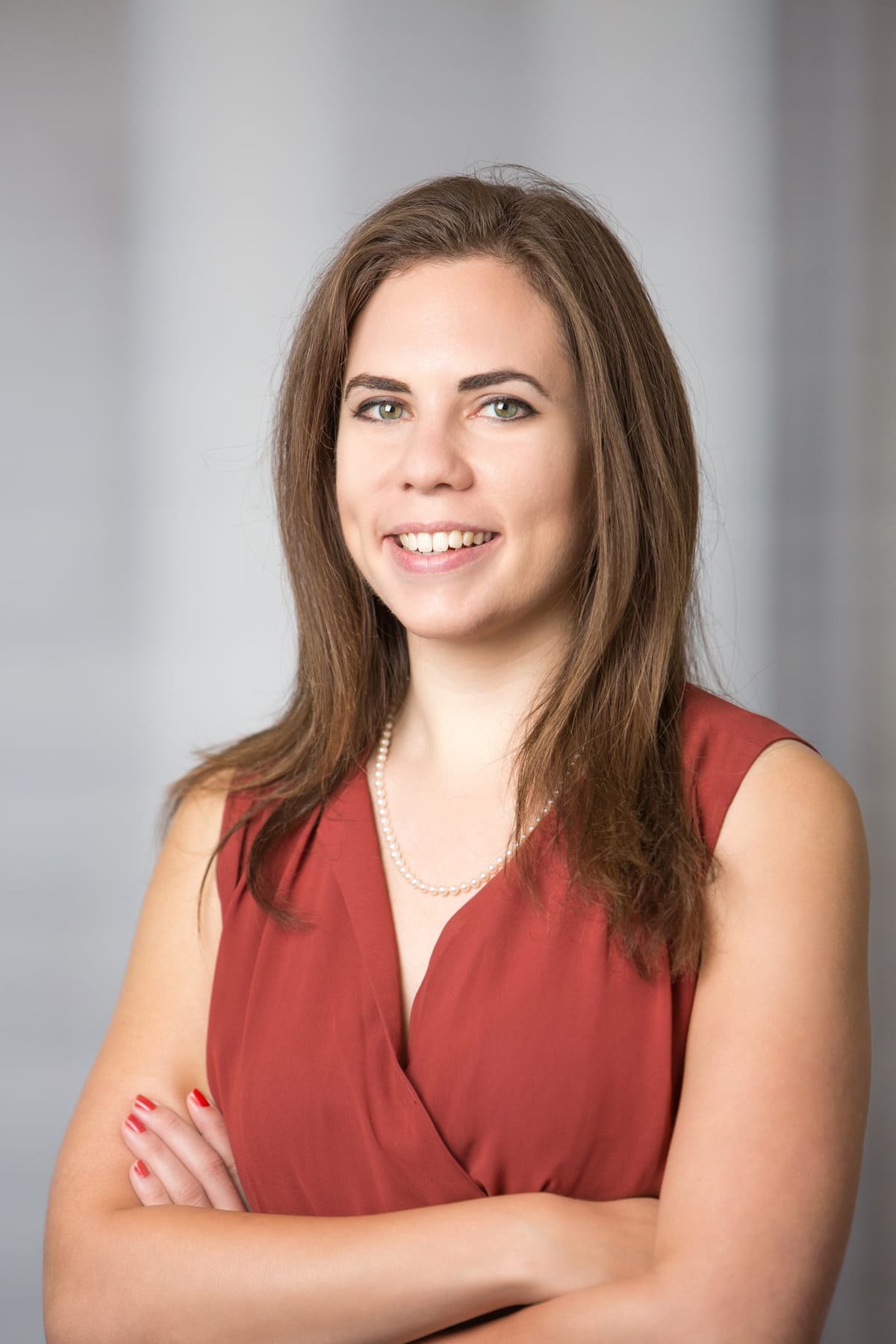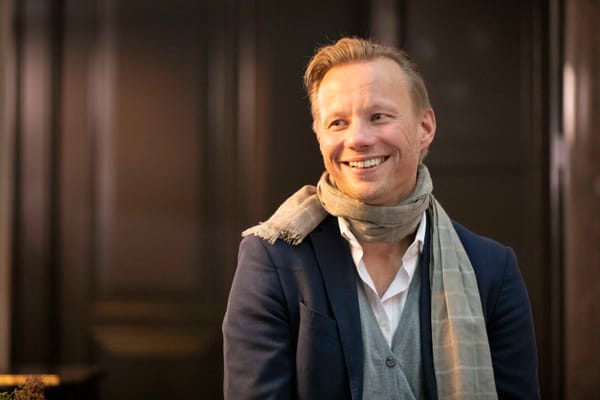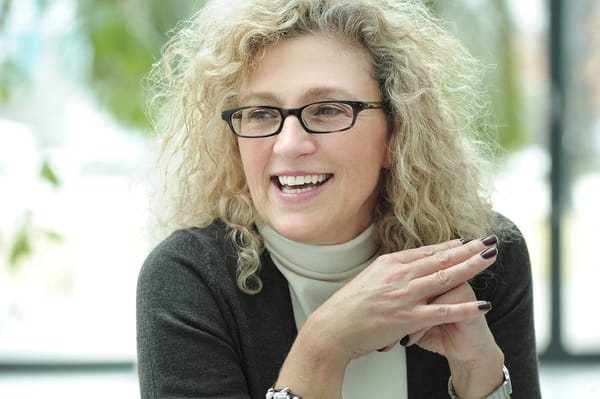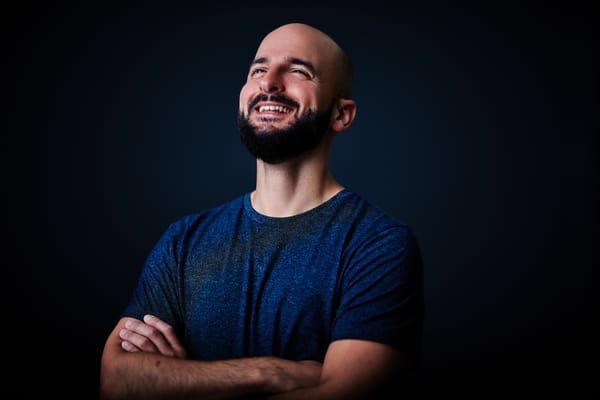Frankfurt, Germany
One of the biggest breaks in Dr. Priscilla Schelp's career came early. She was twenty years old, eager to get a spot at a well-known corporation, when she met the right person in the right place.
The person? A partner at KPMG. The place: one of Germany's most revered management clubs. The result of this chance encounter? A job at KPMG, one of the Big Four professional services multinationals.
At the time, she was brimming with talent and drive but lacking academic results. Applying to one of these firms via the traditional paths wouldn't have cut the mustard — direct access to influential people was vital.
This experience led her to founding networkx and enrolling at Founder Institute Berlin to accelerate her vision.
Networkx is an exclusive club matching platform that uses AI to prequalify and match 'people that have innovative ideas with the network they need by admitting them to exclusive clubs.' You know the type: rotary clubs, business networking clubs, polo, sailing. You probably know of them but know very little about them. Networkx's role is to change that.
Crucially, the platform admits people regardless of ethnic origin, gender, or social heritage. It's free of charge for applicants and makes money from the clubs who need new members despite what they may not admit on the record. In a nutshell, networkx gives people access to places and people they wouldn't otherwise have.
Bridging the gap with networkx
"The truth is that people don't even like to hear about private member[ships] or polo or golf clubs," acknowledges Schelp. "But these are pools of people rich in knowledge and financial resources. These are the kinds of places where you'd find your board members."
"Everyone for board positions, investors, advisors, where do you think they are? They're in these clubs, so rather than building up everything by yourself, why not go where you can find these people?"
Schelp's passion is palpable: "If you go up to them on a street or at an event, they might be cautious because they don't know you, but if you are in a club, it's a trusted community — you're part of the same circle. Honestly, I owe my network and, like, literally my life as it is to these clubs because I found so much good stuff in there."
Indeed, one of the most notable things about networkx is its advisory board. Tim von Toerne, co-founder of Kopernikus Automotive; Techhstars Mentor Cécile Garcia Le Goff; and Raluca Bujoreanu, Product Lead at Zalando, are just three of a jaw-dropping coterie of minds that Schelp leans on and learns from.
As much as she's come to appreciate the power of exclusive clubs, she didn't start networkx just to spread a message she believes in. She started it to get people in. And that begins with demystifying a private world.
"First, you need to know that a club exists, which is difficult because there's no global database on that — the club world lags behind in digitalization. There's even another barrier in countries like Germany, where people don't talk about their club memberships. So even if you have friends in these clubs, you might not know," says Schelp.
"So I did months of research and created a database with more than 100,000 clubs in the world, from business, private members, polo, golf, arts and the like."
"But many of these [clubs] are not transparent on their criteria. So, people not from wealthy or powerful social backgrounds will not apply because they don't know what's expected from them. Women will not apply because they don't know what's expected from them.
"When people relocate and are maybe from another culture, they will also not apply. And it's not always that the clubs discriminate, but it's because basically people are scared or insecure about applying," she says.
With networkx, Schelp also alleviates one of the most significant pain points for prospective club members: "Most of these clubs require two references from current members before your application is even reviewed. When people come to networkx, we can make sure their application is suited to a club they're viable for, and we can ensure that it's seen."
Building networkx with Founder Institute
When she applied for Founder Institute Berlin's pre-seed accelerator, she'd overcome significant adversity and was reaping the rewards. The founder of the nascent networkx, she was also a consultant at KPMG, working on her first book (Become your Superself!: Connect with Yourself to Connect with Others), and a member of multiple exclusive clubs.
Through her blossoming network, she'd been recommended to apply for the Founder Institute's Growth Track — an intensive 14-week, 25-hour-per-week program that only 30% of founders make it through. This, it should be mentioned, is by design. The Founder Institute website backs this up: "Our program is notoriously hard because growing and sustaining a business is much harder."
Founders that make it to the finish line, however, are well set for future success. They spend large amounts of one-on-one time with successful founders and CEOs, receive practical training, and learn how to pitch their ideas successfully. In addition, they can always come back for support long after completing the course.
Schelp agrees with the program's rigor despite how it can make you question yourself and your product.
"I had a manager job (at KPMG). I had just graduated from my doctorate and then had the Founder Institute and my startup and the book. I was like, how is this gonna work?"
Her feelings about her experience at FI are overwhelmingly positive, though she notes it's "necessary to establish commitment and accountability and ensure [you] take it seriously."
"Most programs you go in, get it done and then its 'Bye.' But we still have a relationship afterwards. If you commit, if you pull through, it's like family."
Schelp freely admits that the program was a huge challenge, that she was taken way out of her comfort zone, but that the payoff was worth it. "Even the application was something I was sure I'd failed. I rushed mine because I was so excited to join, but I somehow passed the test!"
Taking a moment to advise anyone who is considering applying, she recommends only applying "when you can focus fully on it and put everything into it. Everyone has phases over the day where you're more concentrated or less concentrated. So you should do it when you are in your best shape," she says.
One of the very first significant lessons Schelp learned at Founder Institute was that you have to be able to validate your product. And you have to be able to convince people.
"The first time I pitched networkx there, I was told by one person (she's now a fan), in these exact words: This is the most useless idea I've ever heard!" She laughs, "But it wasn't — the problem was that I couldn't pitch it well."
And just like that, Schelp must embrace discomfort again to grow. "I hated pitching and was bootstrapping networkx anyway, so I didn't want investors. I told them I wanted to skip the pitches, and they said no. They told me every time you talk about your startup, it's a pitch. It's not just for investors."
"I realized that if you're sure your idea is good but you're getting negative feedback, it's because you can't articulate it in a way that people understand. Now I'm able to tell people about my idea, and they are actually excited."
Schelp attributes her comfort today in talking about networkx to "getting constant feedback, weekly pitch feedback from all of the people, all of the time, and continuously working on it — that's one of the biggest things I took from the program."
Leaning on her network for support
Reflecting on how networkx allows members access to influential people and powerful minds, Schelp says that perhaps the most essential thing the Founder Institute gave her was one-to-one time with people who can help you. "You can book sessions with experts, depending on the topic. You can look at their CVs and think, okay, is this person someone who could help me?"
"These are the people who might be on stage at the biggest startup events or doing a panel session and then they disappear immediately. Founder Institute gave me access to these successful founders."
Schelp asserts that how you use your time and what you do to leverage these people counts most during Founder Institute's program. "This is basically how I found my advisory board," she says.
It's pretty astounding to learn that most of networkx's advisory board members spend between ten and fifteen hours a month working directly for the startup — especially considering these are incredibly successful people at other well-known European startups.
"I knew I needed than just the occasional piece of advice. I was just a one-person army and bootstrapping. I needed more help, so I just asked them for it!"
Schelp doesn't only lean on her board for professional help; she also leans on them for personal support, revealing vulnerabilities and insecurities that few founders would feel safe doing. Considering the number of things she takes on — playing the roles of author, founder, and recently, acting as the newest and youngest member of the Best of Consulting Jury for the German weekly business news magazine Wirtschaftswoche — this is a refreshingly healthy approach.
Providing further insight into her conversations with her board members, she says, "I actually report on my mental health. I report on my physical health. I cry on their shoulders when I need to — and celebrate with them when I can. What I've learned is that it's very important to be honest about your emotions, learn how to handle them, and to identify them and speak about them."
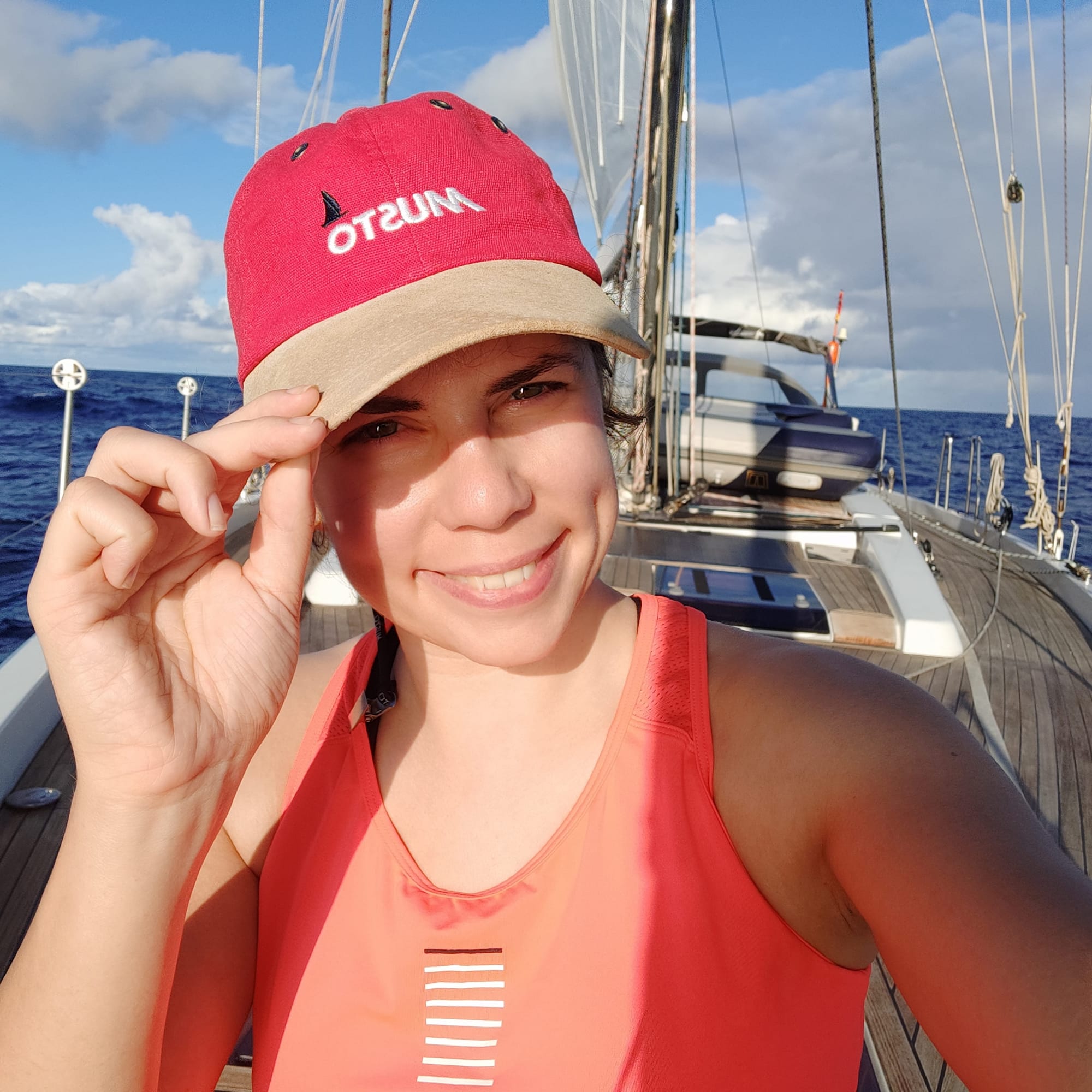
Advice for aspiring founders
Schelp and networkx's future looks bright. With over 100,000 clubs registered on the platform and a rapidly growing user base, you could forgive Schelp if she wanted to slow down. But she's only getting started.
Networkx is just one manifestation of a passion for connecting people and helping to deepen their relationships with themselves and others. It's a passion that shines through when asked to advise budding entrepreneurs. "It's about whether or not you're brave enough to do it. You don't need all the money or resources, you just need a computer and the internet to start," she says. Further to that point, she believes you can start a business and should.
"You probably won't achieve total financial freedom working as an employee, so why not give it a go? Why not start something? Even just starting in the garage or in front of a computer, you are able to build something really big. If it doesn't work, you can go back to your job for the time being."
There are, of course, caveats to her advice. Doing it mindlessly won't produce much; even the best ideas are only as valuable as how they're executed. Once again, perhaps unsurprisingly, Schelp returns to the power of a robust network. "Get the network you need before you need it. It's not something you can switch on like a light," she says.
She recommends that even if you're not ready to start a business today, "mingle at startup events, connect with other founders to find out things. For example, what the incubator accelerator landscape is like."
And if you're a little further along in terms of your certainty in starting a business, Schelp encourages you to "try to build up contact with investors in advance, scope out who you would go to for advice, or even who you would have on your advisory board if you're going to have one."
"That's the best thing I did — to build my advisory board really early in the company's life. I just had my idea and my pitch deck, and I gathered my Avengers. If you're a first time founder, a solopreneur, you're alone, but you don't have to be."

